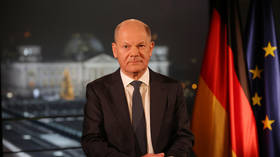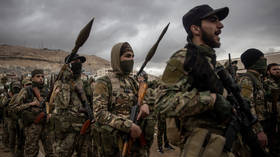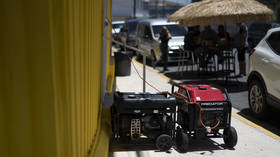Youngest ever Guantanamo prisoner to receive $8mn from Canadian govt – reports
Canada will apologise and pay the youngest ever Guantanamo detainee, Omar Khadr, CA$10.5 million (US$8mn) for being interrogated under “oppressive circumstances” during the decade he spent in the notorious military detention camp.
Omar Khadr was 15 when he was sent to Guantanamo on suspicion of throwing a grenade at a US soldier in Afghanistan, killing him in the process. The Canadian teenager served a decade in the notorious detention center in Cuba and is the only child soldier to be prosecuted in a military commission for war crimes.
The Canadian government and Khadr’s lawyers made a financial agreement last month, according to multiple reports. The official announcement is expected this week.
US Army Sergeant Christopher Speer was fatally wounded during a July 2002 firefight at a suspected Al-Qaeda compound in Afghanistan. Khadr eventually pled guilty to throwing the grenade, which his lawyers say was as a result of being tortured.
#GuantanamoBay turns 15: A look back at the notorious ‘torture camp’ https://t.co/hydh0RVRwD#Gitmo15
— RT America (@RT_America) January 11, 2017
Khadr was shot, captured and taken to Bagram base in Afghanistan where he was interrogated over more than 40 days before being sent to Guantanamo in October 2002.
The teenager was interrogated using sleep deprivation, stress positions and threats of rape. On one occasion Khadr maintains he was hogtied for hours before urinating on himself. His interrogator then used his tied body as a “human mop” to wipe up cleaning solvent on the floor. Khadr was given access to legal counsel more than two years after first being captured.
After eight years, he pled guilty and was charged with war crimes by a military commission. He was sentenced to eight years plus the time he’d already served.
UAE has secret torture prisons in Yemen, US involved in interrogations – AP https://t.co/JxNogjI4aK
— RT (@RT_com) June 22, 2017
In 2010, Canada’s supreme court found Canadian Security Intelligence Service (CSIS) subjected Khadr to “oppressive circumstances” in Guantanamo in 2003. Khadr later said he pled guilty because he felt it was his only way to leave Guantanamo.
CSIS was criticised for failing to have special guidelines for dealing with children. It claims they didn’t know Khadr had been abused by interrogators before questioning.
In 2012, he was sent back to Canada where he served the rest of his sentence. He appealed his guilty plea, which he said was made under duress, and was released in May 2015 – 12 years and nine months after he was first captured. The government attempted to have his bail blocked, but was defeated.
#Pentagon sued over cancer-causing chemicals at #GuantanamoBayhttps://t.co/mRpu1Kobrdpic.twitter.com/4mlaOqeNir
— RT America (@RT_America) April 11, 2017
His lawyers filed a wrongful imprisonment suit against the Canadian government in 2013. In it, they maintain Canada violated international law and conspired with the US in abusing the then-teenager.
Khadr is thought to have been influenced by his father Ahmed Said Khadr. The family had stayed with Osama bin Laden when Khadr was a child. His father was killed in 2003 by shelling from a Pakistani helicopter when staying with Al-Qaeda operatives.
Moazzam Begg, who was detained at both Bagram and Guantanamo at the same time as Khadr, spoke to RT about the younger prisoner’s treatment.
Germany must expect attacks by lone wolves & terrorist groups at ‘any time’ – intel chief https://t.co/UGTo04eJIk
— RT (@RT_com) July 5, 2017
Begg saw Khadr when he first arrived at Bagram. “His eye had been shot out, he was blind in one eye,” he recalled. “He had huge exit wounds in his shoulder and just above his chest.”
“He was tortured in front of me, he was abused and screamed at and shouted at and spat at and stripped naked,” he said. “His treatment was a war crime, there’s no other way to describe it.”
Begg also accused the Canadian government of complicity. “It sent a member of CSIS to go and interrogate him, while he was a child, while he was suffering from these horrific wounds,” Begg said. “Everybody who was in Guantanamo, soldiers, guards and prisoners knew that this is not the way to treat a child.”












